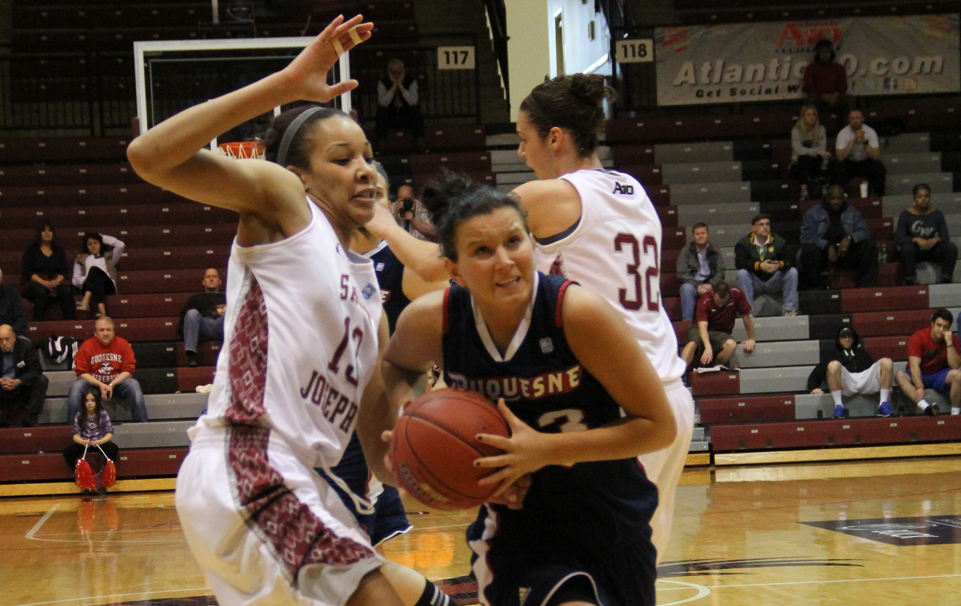Colleen Hammond | Managing Editor
09/03/2020
At a university founded by immigrants, international students have been faced with a unique set of struggles this semester.
In early July, U.S. Immigration and Customs Enforcement (ICE) released new regulations for international students attending virtual classes during the fall 2020 semester.
Previously, international students could qualify for their student visa and remain in the U.S. even if all or the majority of their classes were held online. Under this new regulation, that would no longer hold true. International students whose courses were entirely online would be given just 10 days to return to their home country before being forcibly deported by ICE.
This new rule, backed by the Trump administration, caused great fear, uncertainty and outrage among international students across the country.
“Not living in a bubble, this was widely viewed as a punitive measure,” said Aaron Higgins-Brake, a Duquesne Ph.D. philosophy student.
Luckily for international students, this rule was quickly reversed after dozens of universities across the country backed a lawsuit filed by MIT and Harvard.
However, many international students are still displeased with Duquesne’s response to the situation.
After this new regulation was announced, all international students received an email from the Center for Global Development outlining students’ potential “decisions” going forward.
“Whether you are a new or continuing student at Duquesne, we want you to know that the Center for Global Engagement is here to support you in whatever decision you make for the fall semester,” Joe DeCrosta, executive director of the Center for Global Development said in an email to all international student from July 8.
“All he did was tell us what ICE told us,” Higgins-Brake said.
Higgins-Brake stated that, like many of his peers, he felt that this statement did not take a strong enough stance on protecting international students.
“I expected something more in line with other universities, provosts, presidents and administrations,” Higgins-Brake said. “I was kind of hoping for something more.”
Higgins-Brake and many other international students during this time began to fear the “nightmare scenario.” In the event that Duquesne would switch to all virtual classes at some point this semester, international students would have just 10 days to pack up their belongings, find a flight and move back to their home country.
This became even more terrifying to Higgins-Brake when he learned that not all of his friends would be able to get to their home country, given new COVID-19 flight restrictions in many countries. And, to make matters worse, not all international students currently have a home to return to in their country of origin.
“We just don’t have a place to go in our home country,” Higgins-Brake said. “Duquesne never really acknowledged this nightmare scenario.”
Rikki Janyapanich, a freshman majoring in cyber security, shared similar fears about the possibility of being forced to return to Thailand, a place she hasn’t called home for years. She visited her family over the summer, but had no plans of staying long.
“It was a little bit scary because obviously I wanted to return here and study, and I like it here better,” Janyapanich said. “I consider Pittsburgh as my home.”
Higgins-Brake said this lack of response was exacerbated by the strong responses of other universities in the area.
Penn State University, Carnegie Mellon University and the University of Pittsburgh all filed amicus briefs in support of the Harvard and MIT lawsuit against the federal government on the rule changes.
Duquesne chose not to file an amicus brief in support of international students.
“Our immediate focus was to provide help and guidance to students who were managing conflicting messages, and on the plan to safely open the University,” Gabe Welsch, vice president for marketing and communications at Duquesne, said.
However, Higgins-Brake and his close circle of international students noted that they felt Duquesne should have defended their students by filing a similar amicus brief or proposing creative alternatives to all virtual classes.
“They really tried to avoid taking a stance on anything,” Higgins-Brake said.
The university claims they did not file the amicus brief because they did not think the policy would be carried out in the fall.
“Duquesne was confident that the ICE policy would be swiftly overturned or abandoned (and it was), and focused on strategies to mitigate its impact on students in the unlikely event that it withstood challenge,” Welsch said.
Unlike other international students, Janyapanich felt that Duquesne — particularly the International Admissions staff — responded well to the policy changes and made international students feel protected.
“They’ve been really supportive,” Janyapanich said. “I know that they want us international students who got accepted into Duquesne to come here and experience a college life here.”
Despite the overturning of this regulation, this exchange has affected the way Higgins-Brake and other international students view administration and their place on Duquesne’s campus moving forward.
“Duquesne’s silence on this was very saddening and disheartening,” Higgins-Brake said.
Features editor Katia Faroun contributed reporting.




